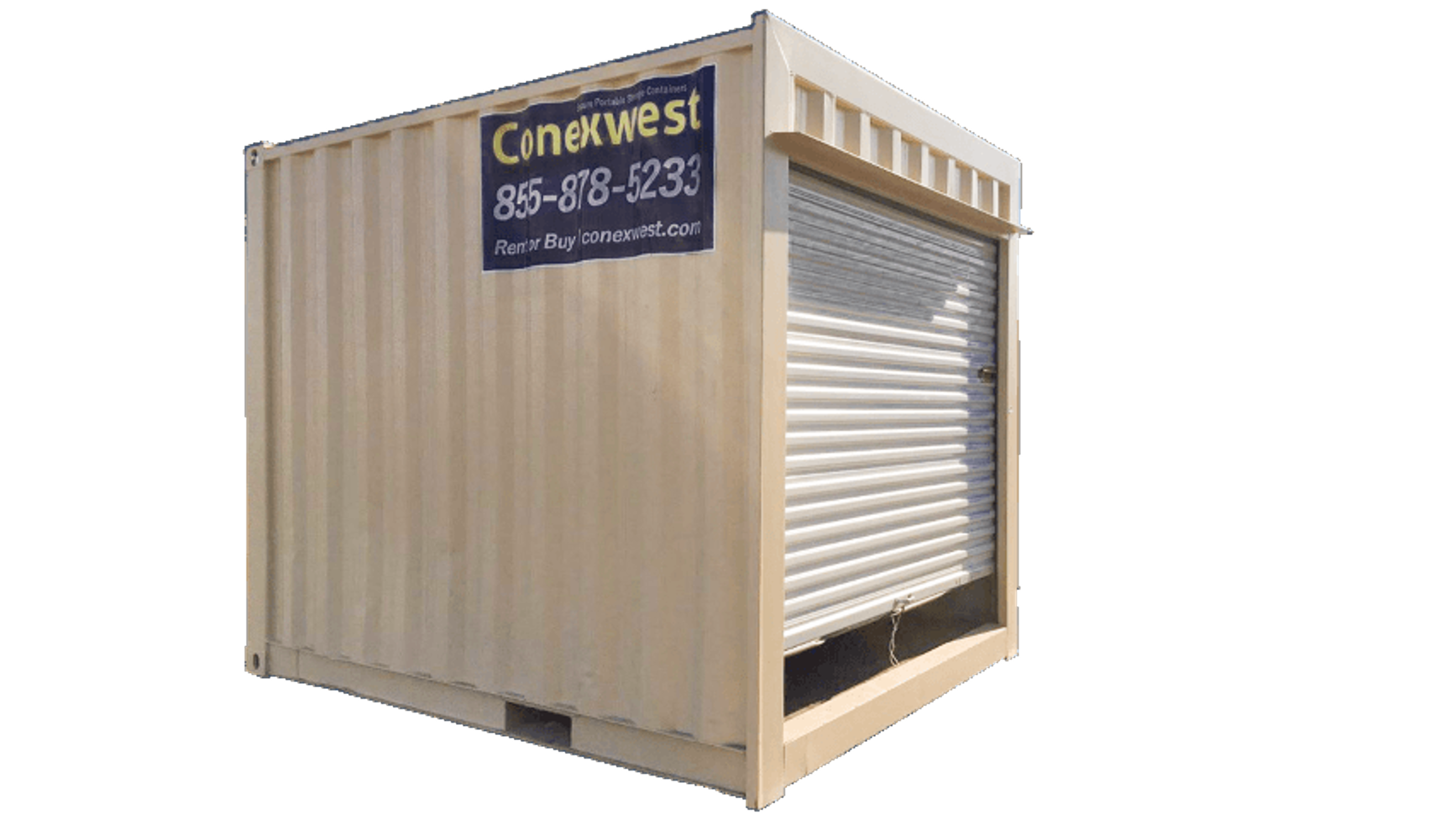Connecticut Shipping Container Zoning Laws, Permits & Building Code Requirements
Get a quoteConnecticut Shipping Container Zoning Law, Permit & Building Code Guide
Key Takeaways
- Connecticut zoning laws for shipping containers vary by municipality, so always check local regulations first.
- Obtaining a building permit involves several steps, including site inspections and compliance with building codes.
- Conexwest has a range of shipping containers for sale and rent, along with customization and delivery services.
Shipping Container Zoning Laws, Permits, & Building Code Requirements In Connecticut
General Zoning Regulations
Shipping containers are often classified as either temporary storage units or permanent structures. Their use can range from storage purposes to residential living spaces, which influences the applicable regulations.
- Zoning Permits: Most municipalities require a zoning permit for placing a shipping container on a property. This involves submitting an application to the local zoning enforcement officer, who will assess compliance with zoning laws.
- Placement Restrictions: Containers must be placed in locations that minimize visibility and disturbance to neighboring properties. For instance, in Vernon, containers should be placed in the least conspicuous location available and must be screened from public view.
- Size Limitations: Many towns impose size restrictions on shipping containers. For example, Newtown has set a maximum allowable size of 1,440 cubic feet for storage containers, with dimensions not exceeding 20 feet by 9 feet by 8 feet.
- Duration of Use: If a shipping container is intended for use beyond 30 days, it may require a Certificate of Zoning Compliance.
Building Code Requirements
- Compliance with Building Codes: Shipping containers used as homes must meet state building codes, which include connecting to utilities such as electricity and water. The Connecticut Department of Energy and Environmental Protection (DEEP) outlines these requirements.
- Inspections: Containers converted into living spaces may require inspections so they meet safety standards regarding structural integrity, plumbing, electrical systems, and fire safety.
- Foundation Requirements: Some municipalities may require shipping containers to be placed on a permanent foundation rather than directly on the ground to comply with local building codes.
Steps to Obtain a Building Permit in Connecticut
- Determine the Type of Container: Identify whether your shipping container will be temporary or permanent, as this affects permit requirements.
- Prepare Required Documentation: Gather necessary documents, including:
- A completed building permit application form.
- A site plan or plot plan showing the location of the container.
- Detailed construction drawings or sketches if modifications are planned.
- Proof of contractor registration and workers' compensation insurance (if applicable).
- Submit Zoning Compliance Application: If required, submit a zoning compliance application so that your project meets local zoning regulations.
- Pay Applicable Fees: Be prepared to pay any application or filing fees associated with the building permit.
- Obtain Necessary Approvals: Secure approvals from relevant departments, such as zoning, fire marshal, health department, and engineering, depending on your project’s scope.
- Await Permit Review: Allow the local building department a designated period (often up to 30 days) to review your application and documentation.
- Receive Your Permit: Once approved, you will receive your building permit, allowing you to proceed with placing or modifying your shipping container.
- Schedule Inspections: If required, schedule inspections during and after the installation or modification process for compliance with safety and building codes.
Conexwest, a leader in shipping and storage solutions based in Northern California, offers new, used, and refurbished containers from 10ft to 45ft, with fast delivery within 3-7 days and container fabrication options like adding shelves and locks. We serve over 10,000 customers nationwide, including prestigious clients like the U.S. Navy and Google. As an ISO 9001 and AWS-certified company, we ensure top quality and competitive pricing. |
Tips For Complying With Connecticut’s Regulations

Consult with our experts to ensure compliance with the laws related to shipping containers.
- Choose an Appropriate Location: Select a level and stable area on your property that is away from utility lines, trees, and other hazards. This complies with safety regulations as well as minimizes potential conflicts with neighbors.
- Follow Size Restrictions: Some municipalities may restrict the maximum dimensions of containers or limit the number of containers allowed on a property.
- Prepare the Site Properly: Check that the ground is prepared to support the weight of the container. This may involve creating a concrete or asphalt pad to prevent sinking and maintain stability.
- Consider Aesthetic Guidelines: Some municipalities may have aesthetic requirements regarding the appearance of shipping containers. You may need to paint or modify the container to blend in with surrounding structures.
- Engage with Local Authorities: Maintain open communication with local zoning officials throughout the process. They can provide guidance and help clarify any requirements that must be met.
- Check Homeowners Association (HOA) Rules: If your property is part of an HOA, review their rules regarding shipping containers, as they may have additional restrictions that could affect your plans.
- Plan for Utilities: If you plan to use the container as a living space, make sure you understand local codes related to connecting utilities such as water, electricity, and sewage systems.
Choose Conexwest For Your Shipping Container Needs

Conexwest’s experts can turn a standard container into a home, office, or pop-up shop.
- Extensive Selection of Containers: No matter if you need standard, insulated, refrigerated, or modified containers, we have options ranging from 10 to 45 ft. Our containers are durable and secure so they can withstand various environmental conditions while keeping your belongings safe.
- Customization Options: With us, you can modify your container with features like windows, HVAC systems, specialized doors, and electrical setups. So, whether you’re looking to create a mobile office, a pop-up shop, or even a container home, our team can help you turn your vision into reality.
- Quality Assurance: All our containers are thoroughly inspected to maintain our quality standards. Our cargo-worthy containers are certified for global transport and come with reliable warranties - 10 years for new containers and 5 years for used ones.
- Expert Guidance on Regulations: Our team is well-versed in the rules that govern shipping containers in various municipalities across Connecticut. Thus, we can assist you in obtaining the necessary permits and maintaining compliance with zoning restrictions, building codes, fire safety regulations, and aesthetic requirements.
- Transparent Pricing: We believe in providing upfront and transparent pricing. So, you won’t encounter hidden fees or unexpected costs when you work with us. Our goal is to deliver value while helping you make informed decisions about your purchase.
Frequently Asked Questions (FAQs)
- What are the basic requirements for a shipping container home in Connecticut?
To build a shipping container home in Connecticut, you need to comply with local zoning laws and obtain the necessary permits. This includes a building permit to see if your project meets local building codes and safety standards. You may also need additional permits for plumbing, electrical systems, and environmental regulations.
- How long does it take to get permits approved?
The time it takes to get permits approved can vary widely depending on the complexity of your project and the workload of the local building department. Simple projects might get approval within a few weeks, while more complex ones could take several months.
- Are shipping containers allowed on residential properties in Connecticut?
Yes, shipping containers can be placed on residential properties in Connecticut, but regulations vary by municipality. Most towns have zoning laws that dictate where and how long a container can remain on a property. It is essential to check with your local zoning office to understand the rules applicable to your area.
- Are there durability standards for shipping containers in Connecticut?
Yes, due to Connecticut's coastal location and susceptibility to severe weather, there are stringent durability standards for shipping containers. Containers must be able to withstand high winds and other environmental factors.
- What is the process for renting a shipping container with Conexwest?
You can choose from short-term rentals or longer-term options based on your needs. Simply contact us for availability, select the size and type of container you require, and we’ll handle the delivery and setup.
